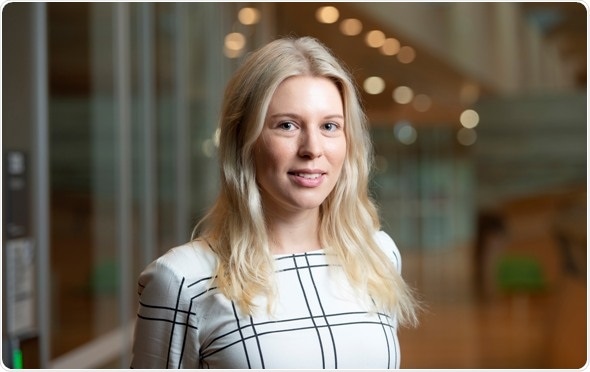Jan 16 2019
A simple tilt of a smartphone could be the key to improving healthy food choices, reducing weight and delivering new treatment options for chronic obesity, new research by Monash University shows.

Research by Dr Naomi Kakoschke has shown that a simple tilt of a smartphone could be the key to improving healthy food choices and delivering new treatment options for chronic obesity.
This new study, led by Dr Naomi Kakoschke from the Monash Institute of Cognitive and Clinical Neurosciences (MICCN), showed that simple Approach-Avoidance Training (AAT) using engaging technology reduced the yearning for unhealthy food, contributing to weight loss.
According to the World Health Organization, people who are overweight or obese – which is defined by having a body mass index (BMI) in excess of 25 – is a global health concern with rates more than doubling over the past 30 years.
Previous research shows that traditional treatments, such as restrictive diets, deliver limited success as obesity is partly driven by ingrained cognitive biases towards high-calorie, indulgent foods.
Our study has important clinical implications. Given that the temptation of unhealthy food is too great for many people, the finding that AAT significantly boosted the selection of healthy food options in individuals with excess weight demonstrates its potential clinical efficacy as an obesity treatment.
Administering AAT alongside traditional treatments may become an important piece of the puzzle in developing effective obesity interventions, especially when it comes to mindful approaches to food selection.”
Dr Naomi Kakoschke, Monash Institute of Cognitive and Clinical Neurosciences (MICCN)
Researchers analyzed the cognitive approach toward improving healthy food choices in 60 men and women, who were overweight or obese, in Melbourne for one week using an iPhone app called Tilt Task that was specifically created by the researchers for this study.
Participants were shown different food pictures and were instructed to tilt their phone towards or away from themselves based on the orientation of the image (portrait or landscape). The image size increased when participants tilted the phone towards themselves (simulating approach) and decreased when tilted away (simulating avoidance).
Contingencies of the task were manipulated to train a positive approach towards healthy food (image tilt: towards 90%; away 10%) and avoidance of unhealthy food (image tilt: 10% towards; 90% away).
Results showed a significant drop in the approach responses toward unhealthy food and a marked shift towards healthier alternatives. Modest weight losses were also recorded during this period, indicating that AAT can be powerful new approach to augment weight loss when used in conjunction with other weight loss interventions.
Dr Kakoschke said the app was specifically designed for participants to “push away” unhealthy food which trained their minds to adopt the same approach in reality.
Similar cognitive training programs using emerging technology have been developed and trialed to help problem drinkers tackle their alcohol dependence.
These training strategies are promising interventions as they train the mind to reject unhealthy choices, in this case food, rather than relying on an individual’s ability to maintain a restrictive diet, which is difficult for most people. Deeply ingrained food choices are a major contributor to chronic obesity.
Smartphone apps are shown to be an engaging delivery mode for cognitive training because they provide a transportable, flexible, efficient and scalable way to manage preventive health conditions, such as weight gain.
While medical consultation is essential for anyone battling severe weight problems, technological innovations like Tilt Task are just one proactive measure that people can use in the comfort of their home in order to make a significant lifestyle change.”
Dr Naomi Kakoschke